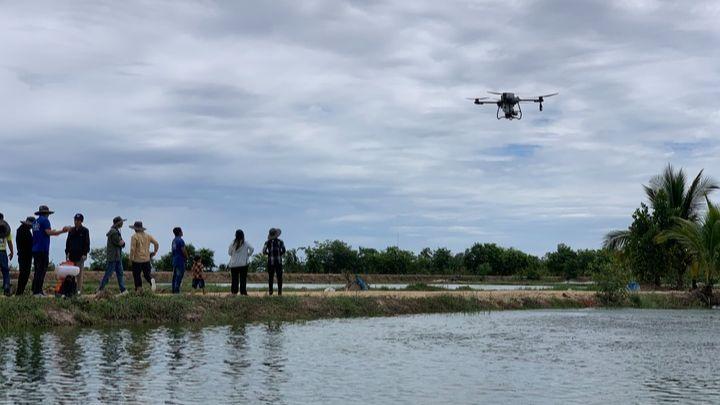PHNOM PENH, Aug. 19 (Xinhua) -- Cambodian officials and scholars on Tuesday lauded Cambodia-China economic and trade cooperation and a bilateral free trade agreement, saying that they have offered tremendous mutual benefit and win-win situation.
They made the remarks during a seminar on Cambodia-China economic and trade cooperation 2025.
Kao Muy Thong, deputy secretary general of the Council for Agriculture and Rural Development of Cambodia, said China is Cambodia's top investor, trading partner and major source of tourists, adding that Chinese investment and tourists have significantly contributed to the kingdom's socio-economic development and poverty alleviation.
He said the Cambodia-China Free Trade Agreement (CCFTA), which entered into force in 2022, has provided greater access of made-in-Cambodia products to the Chinese market.
"Under the CCFTA, Cambodia can export more than 340 categories of products to China, with 95 percent of them being agricultural goods with zero-percent tariffs," he said. "The remaining 5 percent, which are machinery and vehicles, will see tariffs reduced to zero percent within 10 years."
He said 2025, which is the Cambodia-China Year of Tourism, has provided a good opportunity for both countries to further expand people-to-people exchanges and trade relations for mutual benefit.
Heang Sotheara, an advisor to Cambodia's Ministry of Public Works and Transport, said China has played a critical role in Cambodia's economic growth.
Sotheara said Chinese investors should focus on non-garment manufacturing sectors such as food and beverage, agro-industry, and agriculture, adding that these sectors have potential for medium- and long-term investment.
Neak Chandarith, director of the Cambodia 21st Century Maritime Silk Road Research Center of the Royal University of Phnom Penh, said the CCFTA has contributed to rising Cambodian exports to China and improved tariff preferences.
"For the CCFTA to deliver broad-based benefits, Cambodia must invest in technical capacity, accelerate protocol negotiations, and promote higher-value exports," he said.
Chandarith said Belt and Road Initiative (BRI) mega-projects such as the Sihanoukville Special Economy Zone, Phnom Penh Sihanoukville Expressway, Siem Reap Angkor International Airport, and hydropower plants are vivid examples of economic and trade cooperation between the two countries.
"These BRI flagship projects have laid a solid foundation for Cambodia's development of the economy, trade, manufacturing industry, connectivity infrastructure, logistics and tourism as well as for attracting more foreign direct investment to the kingdom," he said.
"In sum, broader Cambodia-China economic and trade cooperation will provide greater mutual benefit and win-win situation, injecting more vigorous impetus into building an all-weather Cambodia-China community with a shared future in the new era," Chandarith added.




 A single purchase
A single purchase









